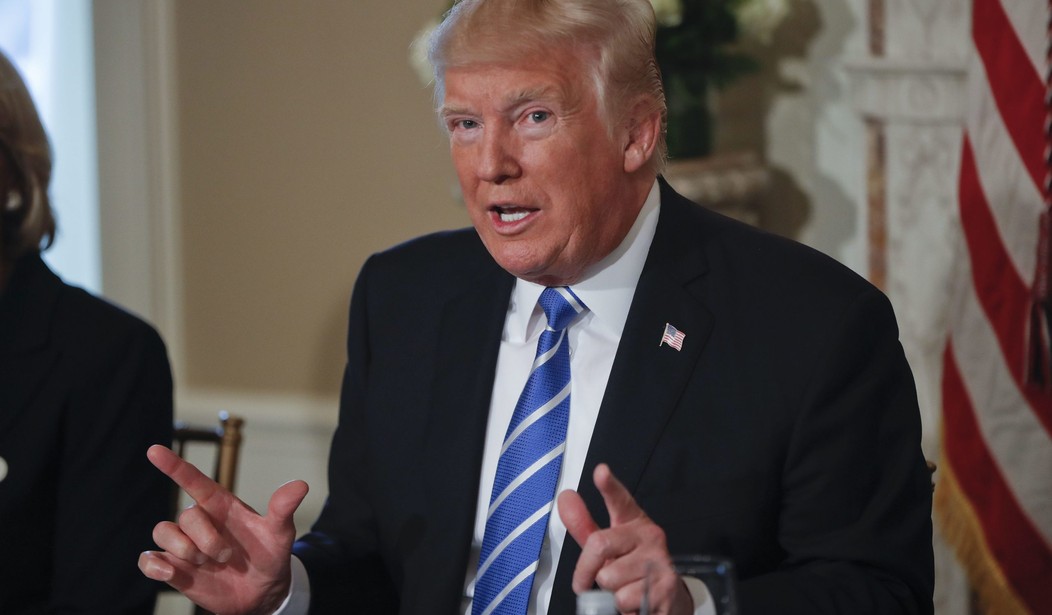One of the many constant criticisms of Donald Trump is that he has no “official” foreign policy, no codified theory explaining his endless ad hoc global initiatives. That is correct as far it goes. But is it a bad thing? Official foreign policies have value if you’re a graduate student in international relations or are earning a stipend at a think tank, but for presidents not so much. They have to read a constantly changing landscape and be nimble, unhampered by rigid concepts or yesterday’s ideologies.
Trump has taken this flexible approach to new heights by being his own one-man good cop/bad cop, alternately vilifying and coaxing, even buttering up, his adversaries, often at what appears to be a dizzying pace. The press is ever eager to attack him for this (as they are for everything else), but as of now, his technique seems to be working. He communicates with Kim Jong-un and North Korea’s leadership as a person, not as some executive branch/State Department construct, spouting the hoary rhetoric of diplomacy.
To the North Koreans — and I suspect the Iranians and others of ill intent — this makes him at once more believable and more threatening. Despots tend to react as people — in their cases evil people. Trump’s communication style has, again thus far, been vastly superior to the more traditional methods of recent presidents who not only achieved nothing, but failed miserably and moved things backwards.
Those presidents and their administrations more than kicked the proverbial can down the road. They catapulted it over mountains and into ravines, allowing us to be in the perilous situation we are today. This is as true of Iran as it is of North Korea. We were out-negotiated by both, even though our side always had “theories,” what we were told were rational justifications for our decisions or non-decisions.
It’s taken more than a year for Trump to evolve and be comfortable in this approach and to build a team that works well with him. First on board was UN Ambassador Nikki Haley, who occasionally separates herself from the president, but never in ways that undercut his greater, more direct and authentic, message. Now he has added John Bolton and Mike Pompeo, the latter having taken hold of the secretary of State’s position in a near-flawless manner. His appointment promises to bring overdue change to the long moribund State Department. (At first glance, it might have seemed Rex Tillerson, a fellow businessman, was a good fit for Trump at State. But the two men were from radically different kinds of businesses, one managing a giant global conglomerate, the other a basically seat-of-the-pants real estate enterprise.)
But even with his new team, it’s clear Trump is very much in charge, his own good cop/bad cop, Kissinger and Nixon all rolled into one.
What we are depending on here in lieu of foreign policy theory is something much simpler — that Trump is a man of good heart.
Yikes! Can’t you hear the gasps from the mainstream media at that characterization? But think about it. Yes, he has a thin skin and snaps back at his adversaries, sometimes unnecessarily. But beneath that skin is a man who really cares for this country and its citizens. He also cares for the world at large. These things are not at all mutually exclusive if you believe that the United States largely (never perfectly — that’s impossible) acts for the greater good, that we are indeed an exceptional nation. This is something about which the previous administration was, to put it mildly, ambivalent.
Trump is in no sense a neocon, at least as we came to know that democracy-promoting ideology in the run-up to the Iraq War, a time when virtually everyone was one. But his contrasting nationalism is not nearly as one-sided and insular as some would have us believe. He has made a point to say he doesn’t want to force democracy on anyone, but he wouldn’t be adverse if they decided to move that way themselves — a compromise more likely to be successful in the long run (cf. Saudi Arabia suddenly starting to join modern society). Trump’s direct, unvarnished approach may be working even more than even he imagined.
As a last thought, historically, traditional diplomacy has almost always been an attempt to engage or persuade other nations by sugar-coating the truth. I don’t know about you, but sugar-coating the truth almost never seems to me to work in personal relationships. Why would it on the global stage?
Roger L. Simon – Co-Founder and CEO Emeritus of PJ Media – is also a novelist and screenwriter.









Join the conversation as a VIP Member